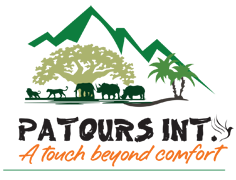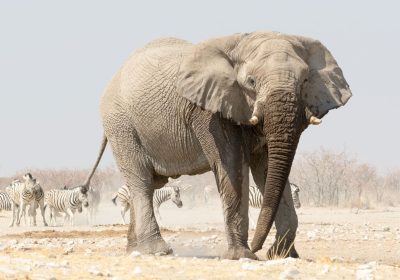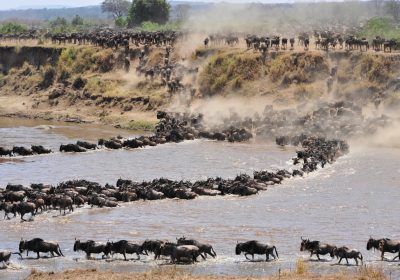Back
EN / USD
Language
Currencies

Tanzania
Tanzania is one of Africa’s top safari destinations, offering breathtaking landscapes and world-renowned wildlife encounters. The legendary Serengeti National Park is home to the spectacular Great Wildebeest Migration, where millions of animals move across the plains in a natural wonder unlike any other. Nearby, the Ngorongoro Conservation Area, with its iconic crater, provides some of the best game viewing in the world—featuring lions, elephants, rhinos, and countless other species in a unique natural sanctuary. Together, Serengeti and Ngorongoro form the heart of an unforgettable Tanzania safari holiday, perfect for adventure seekers, nature lovers, and families alike.
2 tours in Tanzania
Showing 1 – 2 of 2 tours found
FAQ’s about Tanzania
Have more questions? Contact us.
Do I need a visa to enter Tanzania?
Yes—most visitors must obtain a tourist visa. You can apply online for an e-Visa or get one upon arrival at Tanzanian airports or border crossings. Visas typically allow stays of up to 90 days. A valid passport with at least six months beyond the date of entry is required.
What vaccinations or health precautions are needed?
If you are arriving from or transiting through a yellow fever zone, a vaccination certificate is mandatory. Broader health advice includes routine immunizations (e.g., hepatitis A/B, typhoid), and taking malaria prophylaxis. Insect repellent and bottled water are also strongly recommended.
When is the best time to visit Tanzania?
The dry season (June to October) offers excellent wildlife viewing, including the Great Wildebeest Migration. The wet season (November to May) brings lush landscapes and bird-watching opportunities, though some parks may be harder to access.
What should I pack for a Tanzanian safari or trek?
Bring layered, neutral-colored clothing, sturdy walking shoes, a wide-brimmed hat, rain gear, sunscreen, insect repellent, binoculars, and a camera. A lightweight jacket for highland areas and nights is advised.
Is Tanzania safe for tourists?
Generally, yes. Tanzania is considered safe for visitors. However, exercise standard precautions, such as avoiding walking alone at night in urban areas, securing valuables, and using licensed transportation.
What currency is used, and are credit cards widely accepted?
The Tanzanian Shilling (TZS) is the local currency. US dollars are widely accepted in tourist areas, but smaller, remote locations usually only accept shillings. Credit cards work in major lodges and hotels—carry cash for rural areas.
Do I need travel insurance?
Yes—travel insurance is highly recommended to cover potential medical emergencies, trip cancellations, evacuations, and activities like safaris or trekking.
What tipping etiquette should I know?
Tipping is customary though not mandatory. Recommended rates: Safari guides: around USD 10–20 per day Porters: USD 5–10 per day Lodge staff: US$10–15 per room per night, often pooled among the team
Are safaris suitable for families or solo travelers?
Absolutely—Tanzania offers tailor-made safari options. Many camps and lodges are family-friendly with child-specific activities, while private tours are great for solo travelers. Group safaris offer cost-effective, social experiences.
Can I see the Great Wildebeest Migration?
Yes—it’s one of Tanzania’s most iconic attractions. Depending on the time of year, you can see river crossings (June–August) or calving season (late October–November) in the Serengeti.
Latest stories
Planning a family safari in Africa? Great choice! Safaris aren’t just for...
Namibia is famous for its Etosha safari, but this country offers so...
Both Tanzania’s Serengeti and Kenya’s Masai Mara are legendary safari destinations, attracting...





